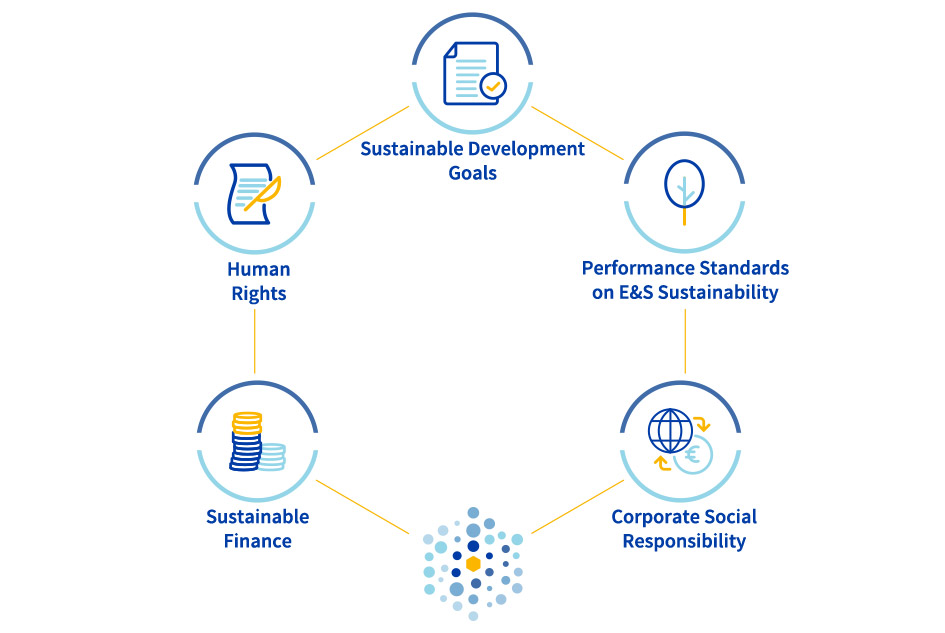
Sustainable Development Goals
The Sustainable Development Goals are the blueprint to achieving a more sustainable future.
The Goals were adopted by the United Nations General Assembly in 2015 and address the global challenges facing our Planet such as poverty, inequality, climate, environmental degradation, peace and justice. The 17 Global Goals include specific targets to be achieved by 2030. By considering the SDGs at all levels, from Corporate and Public Policies to Project implementation, we ensure that the contribution towards sustainability is maximised.


Human Rights
The Universal Declaration of Human Rights was adopted by the United Nations General Assembly in 1948 and consists of 30 articles outlining any individual’s rights.
Human rights are moral principles or norms that describe certain standards which are understood as inalienable, fundamental rights to which a person is inherently entitled simply because she or he is a human being regardless of their nationality, location, gender, language, religion, ethnic origin, sexual orientation or any other status.
Promoting human rights is a key objective of our work. We ensure that public policies, investment decisions, corporate activities and projects do not result in human right violations as secondary unintended impacts.

Performance Standards on E&S Sustainability
The World Bank Group / International Finance Corporation Performance Standards on Environmental and Social Sustainability are often used as a benchmark for good international practice on the management of E&S risks.
The Standards focus on the responsibilities of clients aiming to borrow money from IFC, and are often adopted by other international funding institutions when co-financing a project, plan or programme. Performance Standard 1 outlines the need to set up an Environmental and Social Management System for the Project and to conduct meaningful stakeholder engagement. Performance Standards 2 to 8 address key environmental and social risks and outline the performance required by the client.


Sustainable Finance
Sustainable finance refers to any financial service integrating environmental, social and governance criteria into investment decisions to benefit both clients and society.
Sustainable finance aims for the delivery of positive environmental and social externalities that are real, vierifiable and additional to business as usual.
Given the central role of financial services in the globalised economy, incorporating ESG criteria into investment decisions is instrumental in the transition to a sustainable economy.

Corporate Social Responsibility
The voluntary incorporation of environmental and social concerns into business operations by private firms is a management concept known as Corporate Social Responsibility (CSR).
By actively integrating CSR into company culture, a corporation can significantly improve its contribution to the transition to a sustainable economy and its reputation among clients, stakeholders, and the general public. The principles of transparency and good governance are also related to CSR, and encompass, inter alia, the reporting and disclosure of key E&S indicators.


